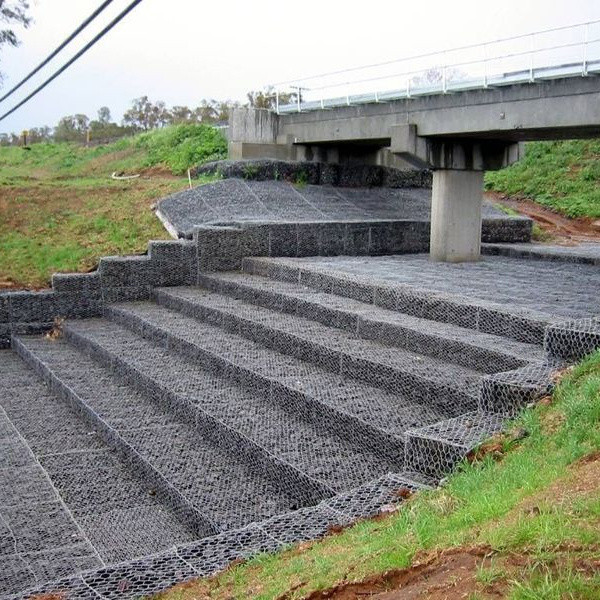നവം . 01, 2024 06:22 Back to list
Suppliers of Welded Gabion Walls for Durable and Effective Landscaping Solutions
The Rise of Welded Gabion Walls Suppliers and Benefits
Welded gabion walls are gaining popularity in the construction and landscaping industries due to their durability, versatility, and aesthetic appeal. These walls, made from welded wire mesh filled with rock or soil, provide excellent solutions for retaining walls, architectural features, and erosion control. As demand grows, the number of suppliers specializing in welded gabion walls has also increased, making it crucial for consumers to understand the benefits and options available.
What Are Welded Gabion Walls?
Welded gabion walls consist of rectangular or cubic steel mesh baskets that are filled with stones, gravel, or soil. This construction method offers a rigid and robust structure that can withstand significant pressures, making it ideal for various applications. Unlike traditional woven wire gabions, welded gabions feature panels welded at each intersection, providing enhanced strength and stability.
These walls are typically used for
1. Erosion Control Gabion walls prevent soil erosion in areas prone to water runoff and sliding soil. They stabilize slopes and riverbanks, protecting landscapes from natural elements.
2. Retaining Walls Welded gabion walls serve as effective retaining walls, creating leveled areas in hilly terrains. They safely hold back soil and can be designed to withstand hydrostatic pressure.
3. Architectural Features More than just functional, welded gabions can be used artistically to create visually appealing structures. They can serve as decorative fences, entryway gates, or focal points in gardens and parks.
4. Noise Barriers The dense nature of filled gabions can help reduce noise pollution in urban areas, acting as sound barriers alongside busy roads.
Advantages of Welded Gabion Walls
1. Durability Welded gabion walls are engineered to last. The welded mesh is resistant to rust and corrosion, which significantly extends the lifespan of the structure, especially in harsh weather conditions.
welded gabion wall suppliers

2. Eco-friendliness Using natural materials like stones and soil contributes to sustainability. Gabions allow for vegetation to grow through and around them, providing a habitat for wildlife and enhancing biodiversity.
3. Cost-Effectiveness Compared to traditional retaining wall solutions, welded gabion walls can be more economical. Their construction often requires less heavy machinery and labor, which can result in lower overall project costs.
4. Flexibility in Design Welded gabions are available in various sizes and shapes, providing flexibility in design. They can be customized to fit project specifications, whether for residential landscaping or large-scale civil engineering projects.
Choosing the Right Supplier
When looking for welded gabion wall suppliers, consider several factors
1. Experience and Reputation Suppliers with a proven track record will likely provide better quality products and services. Look for reviews and testimonials from previous customers.
2. Range of Products A supplier that offers a variety of sizes, wire thicknesses, and mesh configurations will better meet varying project requirements.
3. Customer Service Excellent customer support can make a significant difference throughout the purchasing process. Ensure that the supplier provides guidance in selecting the best products for your needs.
4. Technological Advances Stay informed about suppliers that utilize modern manufacturing processes and materials. Innovative methods can enhance the durability and appearance of gabion walls.
In conclusion, welded gabion walls offer numerous advantages and applications, making them a sought-after solution in construction and landscaping. With a growing number of suppliers, consumers can choose options that best fit their project requirements while benefiting from the robust, sustainable, and aesthetically pleasing characteristics of welded gabions.
-
HESCO Gabion Baskets for Coastal Erosion Prevention
NewsAug.22,2025
-
Longevity and Durability of River Rock Gabion Walls
NewsAug.22,2025
-
How to Integrate Gabion 3D Walls in Urban Planning
NewsAug.22,2025
-
Reno Mattress Gabion Applications in Civil Engineering
NewsAug.22,2025
-
How to Install Wire Mesh for Gabion Baskets Properly
NewsAug.22,2025
-
Best Materials for Filling a Chain Link Gabion
NewsAug.22,2025
-
Wire Mesh Thickness Impact on Gabion Wall Load Bearing
NewsAug.12,2025






